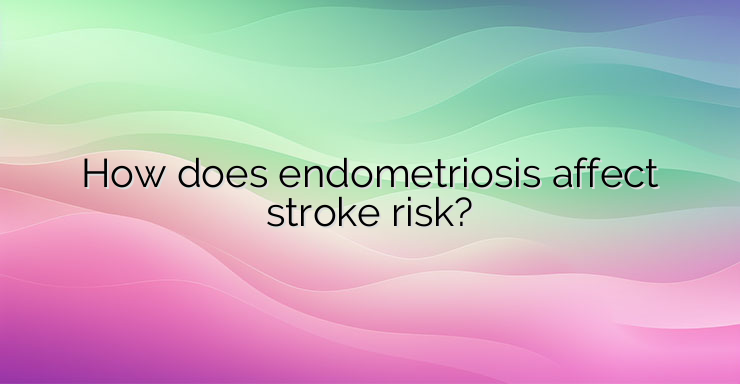Endometriosis, an abnormal growth of endometrial-like tissue outside the uterus, affects a proportion of women of reproductive age. Previous research has found that women with endometriosis are at greater risk of cardiovascular disease such as heart attack, high blood pressure and high cholesterol. These findings suggest that women with a history of endometriosis may also be at a higher risk of stroke, the researchers said. The clinical approach looks at a woman’s health as a whole, including monitoring the presence of high blood pressure, high cholesterol and other new risk factors for stroke, not just symptoms specifically related to endometriosis, such as pelvic pain or infertility. In this study, researchers analyzed the relationship between endometriosis and the development of ischemic stroke — caused by blood clots due to blockage of blood flow or hemorrhagic stroke — caused by bleeding in the brain among women enrolled in the Nurses’ Health Study II. The study involved 112,056 women who were nurses between the ages of 25 and 42 at the start of the study in 1989. The current study ended in 2017. Laparoscopic techniques were used to diagnose endometriosis. Endometriosis was diagnosed in 5,244 women. The researchers analyzed data collected every two years for many possible risk factors, including alcohol intake, current body mass index, menstrual regularity during adolescence, current use of oral contraceptives and postmenopausal hormones, smoking history, diet , physical activity, aspirin use, ethnicity, and income. In addition, the researchers analyzed whether the association between endometriosis and stroke risk could be explained by other associated factors such as high blood pressure, high cholesterol, hysterectomy – removal of the uterus, oophorectomy – removal of the ovaries, and postmenopausal hormone therapy. During the 28 years of follow-up, including medical record confirmations, the researchers documented 893 cases of stroke. The analysis found: Patients with endometriosis (5,244) had a 34% higher risk of stroke compared to those not diagnosed with endometriosis, 106,812. The greatest risk of stroke associated with endometriosis was observed in patients with hysterectomy and/or oophorectomy (39%) and postmenopausal hormone therapy (16%). No significant differences in the association between endometriosis and stroke were observed across multiple factors—age, history of infertility, body mass index, or menopause. There are circumstances in which hysterectomy and/or oophorectomy is the best choice for patients, but the potential health risks associated with these interventions should also be known. Other research also suggests that hysterectomy is associated with an increased risk of stroke.even if there is no history of endometriosis. These results do not indicate that women who have endometriosis are certain to develop a stroke. These findings indicate only an association with a moderate relative risk. The absolute risk of stroke in women is low. In patients with endometriosis, a complete analysis of the health status should be done and the risk factors should be evaluated. References: https://www.ahajournals.org/doi/10.1161/STROKEAHA.122.039250


Leave a Reply